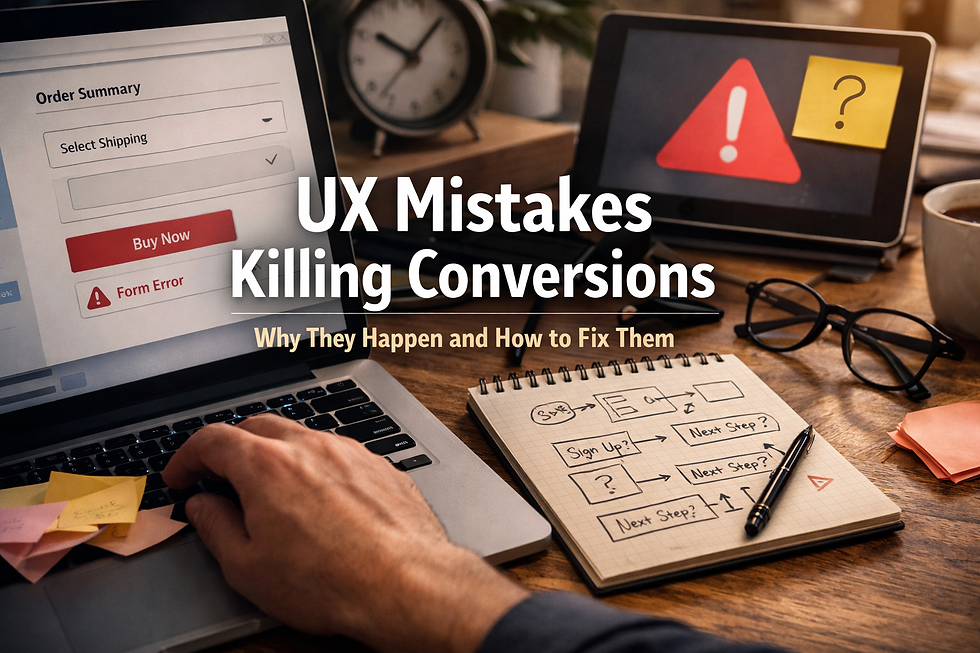AI and Google Advertising: What’s Next?
- Jul 22, 2024
- 3 min read

Discover the latest AI-driven changes in Google Ads, their implications for PPC marketers, and six key recommendations to stay ahead.
Artificial Intelligence (AI) is transforming every aspect of Google, including its advertising platform. Recent advancements in generative AI are reshaping the landscape of Google Ads, creating new challenges and opportunities for PPC marketers.
The Impact of Generative AI on Search Volume and CTRs
Anna Crowe recently highlighted the significant influence of AI on SEO in an article on Search Engine Land. One of the most striking revelations is that while AI has increased Google search volume, it has also led to a 60% decrease in average Click-Through Rates (CTRs), potentially reducing organic traffic by 30%.
The introduction of AI Overviews on Search Engine Results Pages (SERPs) is a major factor in this shift. These overviews push organic results further down the page, making it harder for them to attract clicks, even if they rank highly.
The Impact on Advertisers
For advertisers, the scenario is different. Google is positioning ads above AI Overviews on SERPs, giving them prime real estate. This shift is likely to lead businesses to increase their Google Ads budgets, potentially diverting funds from SEO to advertising.
Crowe suggests that we might see a drop in Cost-Per-Click (CPC) due to the increased ad placements. However, this decrease might be more noticeable in AI-driven campaign types like Performance Max and Demand Gen campaigns rather than traditional Search campaigns.
Keywords: A Second Life?
Despite a decline in the power of standalone keyword targeting, recent updates from Google hint at a resurgence. Improvements in search ads query matching and brand controls suggest that keywords might still play a crucial role in capturing traffic that’s lost to diminishing organic reach.
Mastering Your Google Ads Program
To stay ahead of the curve, mastering all aspects of your Google Ads program is essential. Here are six recommendations to navigate the evolving landscape:
1 - Stay Current on Match Types
Today’s broad match uses contextual signals to understand intent. Familiarize yourself with these changes to optimize your campaigns.
2 - Explore Google Campaign Formats
Incorporate AI-driven campaigns like Performance Max into your strategy to leverage their full potential.
3 - Combine Keyword Match Types and Campaign Types
Test various combinations to determine what works best for your Google Ads program, ensuring a balanced approach.
4 - Avoid Copy-Paste Strategies
Tailor strategies to each campaign’s unique needs instead of relying on one-size-fits-all solutions.
5 - Invest in Original, High-Quality Content
With the increasing amount of AI-generated content, ensure your content stands out by focusing on experience and opinion.
6 - Maintain a Marketing-First Mindset
Always align your ad program with your company’s goals, focusing on how Google Ads can support your marketing strategy.
Optimism Amidst Change
Despite the challenges AI presents, there’s reason for optimism. Your website remains crucial for engaging with potential customers. As AI continues to evolve, adapting your strategies will be key to maintaining and growing your presence on Google’s platforms.
Stay updated, test new approaches, and keep your focus on delivering high-quality, engaging content. By doing so, you can turn the challenges of AI into opportunities for growth and success in your Google advertising efforts.
Expert Insights
Anna Crowe, SEO and PPC expert, emphasizes the importance of adapting to AI changes by continuously updating strategies and leveraging new ad formats.
Larry Kim, founder of MobileMonkey, highlights that investing in high-quality, original content is crucial to stand out in an AI-dominated landscape.


